One summer evening, while playing indoors, a 5-year-old boy accidentally kicked a ball and hit his mother, Ms. L. (35 years old), in the head and left ear. After the collision, the woman felt dizzy and had pain in her head and ear.
Because of prolonged tinnitus and hearing loss throughout the night, the next morning, Ms. L. went to a medical facility in Ho Chi Minh City for a check-up.
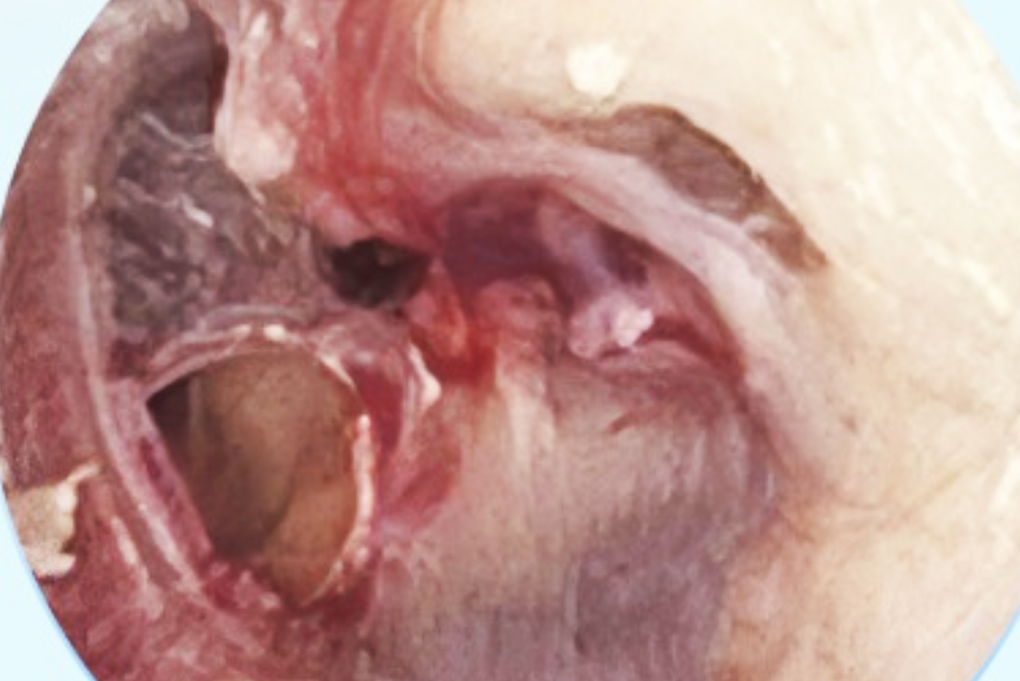
Woman suffered a perforated eardrum after an accident at home (Photo: Hospital).
Specialist Doctor Nguyen Tri Minh Tri, ENT unit, said that after performing an ENT endoscopy on Ms. L., it was noted that the left eardrum had a fairly large hole in the anterior 1/2 of the eardrum. The audiometric test results showed that Ms. L. had level II conductive hearing loss in her left ear.
Doctor Tri diagnosed Ms. L. with a perforated eardrum after trauma.
The patient was prescribed medication and told to come back for a check-up after 2 weeks or immediately if the left ear was painful, had discharge, pus, tinnitus, worsening hearing loss, runny nose, stuffy nose, or fever.
Doctor Tri said that the eardrum is a thin, elastic membrane that plays an important role in transmitting sound and protecting the middle ear from dust, bacteria and water.
Normally, the middle ear is a closed cavity, separated from the outer ear by the eardrum and connected to the nose through a small tube called the "Eustache tube". The Eustachian tube helps equalize air pressure on both sides of the eardrum.
When the ball suddenly hits the ear, it creates a large pressure wave that passes through the external ear canal. The pressure difference is too great, exceeding the eardrum's tolerance, causing a perforation.
This mechanism is similar to cases of eardrum perforation caused by sudden exposure to loud sounds (such as bomb explosions, jet aircraft noise) or being slapped hard on the ear. In addition, the eardrum can also be perforated by direct mechanical impact such as accidentally inserting a cotton swab or other hard object too deep into the ear.
Strong impact not only causes the eardrum to rupture but can also affect the chain of ossicles in the middle ear. This further affects hearing.
Common symptoms of a perforated eardrum due to trauma include sudden sharp pain, tinnitus, hearing loss, a deep ache in the ear, bleeding from the ear...
If not treated promptly and properly, a perforated eardrum can lead to serious complications such as otitis media, permanent hearing loss, mastoiditis, or even deafness.
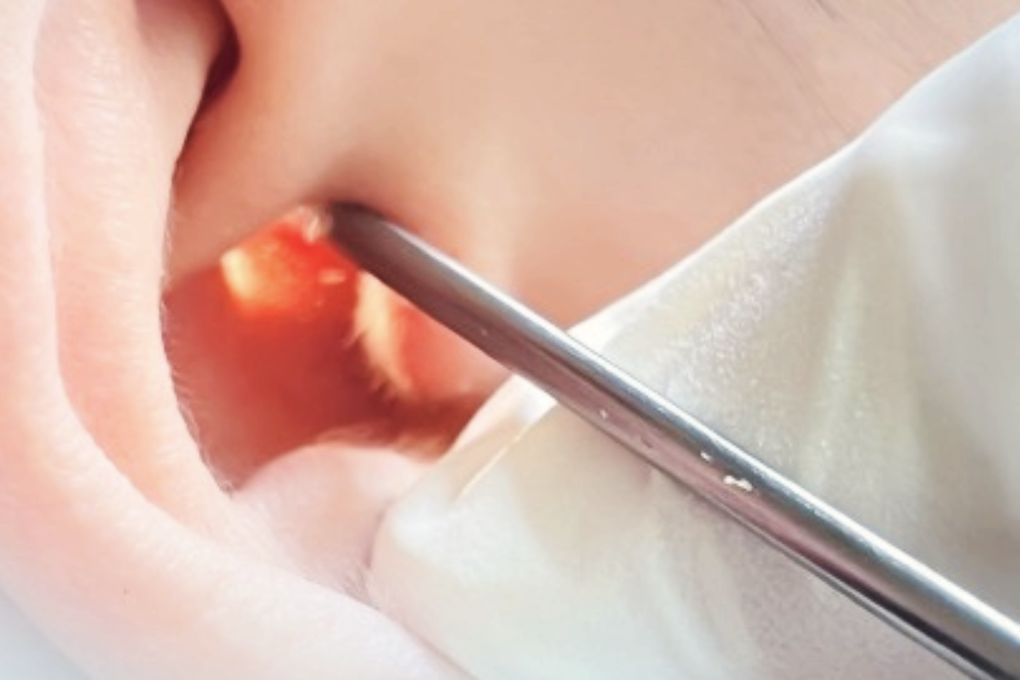
Endoscopist checks patient's ear (Photo: Hospital).
According to Dr. Tri, with a perforated eardrum due to trauma (especially when the hole is small and there is no infection in the outer or middle ear), the eardrum will likely heal on its own. At this point, close monitoring and treatment of nose and throat problems is enough.
If the hole in the eardrum does not heal on its own after a period of monitoring, or if the eardrum has been perforated for a long time, bacteria, dirt from the outside or fluid from the nose and throat will flow into the middle ear, causing recurrent otitis media. The doctor will prescribe medications to control the inflammation.
Once the inflammation has stabilized, the patient may be indicated for tympanic membrane repair surgery to close the hole and restore eardrum function.
Doctors recommend that if you have unusual symptoms such as sharp pain, tinnitus, hearing loss, especially after an ear injury or after swimming, see an ENT specialist as soon as possible.
Never pick your ears or put in ear drops on your own when you see discharge or bleeding from the ear, because it can lead to more serious complications if treated incorrectly.
Source: https://dantri.com.vn/suc-khoe/tphcm-cap-cuu-nguoi-me-thung-mang-nhi-vi-con-trai-choi-bong-trong-nha-20250712172136608.htm





![[Photo] General Secretary To Lam attends the opening ceremony of the National Achievements Exhibition](https://vphoto.vietnam.vn/thumb/1200x675/vietnam/resource/IMAGE/2025/8/28/d371751d37634474bb3d91c6f701be7f)
![[Photo] National Assembly Chairman Tran Thanh Man holds talks with New Zealand Parliament Chairman](https://vphoto.vietnam.vn/thumb/1200x675/vietnam/resource/IMAGE/2025/8/28/c90fcbe09a1d4a028b7623ae366b741d)




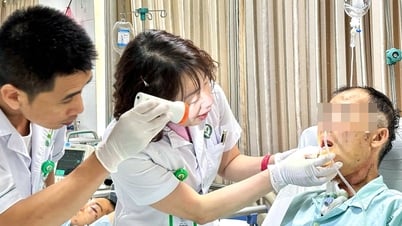




















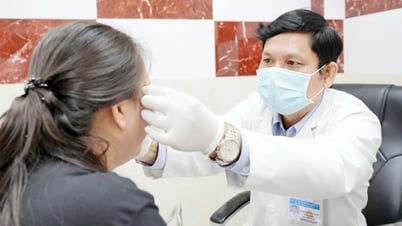

![[Photo] Images of the State-level preliminary rehearsal of the military parade at Ba Dinh Square](https://vphoto.vietnam.vn/thumb/1200x675/vietnam/resource/IMAGE/2025/8/27/807e4479c81f408ca16b916ba381b667)

















































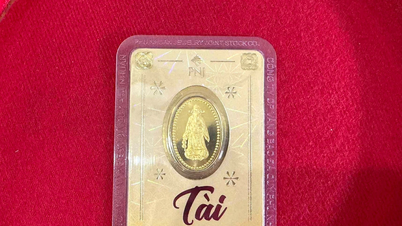














Comment (0)